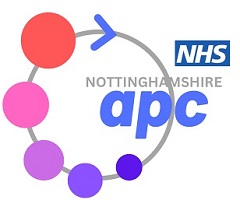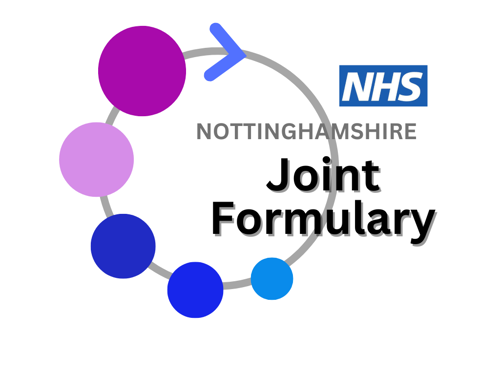Opioids and STOMP
OPIOID ZONE
The national Live Well With Pain website contains a wide range of resources for patients and clinicians, from patient leaflets to educational videos for prescribers.
Both healthcare professionals and patients need to register with the website to access the resources.
The resources include information/leaflets/posters on:
Supporting self management:
- Key resources for clinicians to support patient engagement in self management
- Training for social prescribers, clinicians and other professionals to support self management
- Patient self management tools
- Ten Footsteps interactive guide for patients
- Ten Footsteps guide for clinicians
Starting and reviewing an Opioid
- Taking opioids for pain
- Chronic pain pathway ladder
- Opioid equivalence, risks and recommendations
- Ten opioid safety messages
- Risks of opioid medication (information leaflet)
- The great side effect lottery (poster/flyer)
- Opioid tapering resource pack (full pack of step down and review materials)
- Medication review and taper form (For patients)
- Sleep well with pain leaflet
- Opioids and driving
Other resources include:
- Opioid deprescribing guide (Notts APC guide to tapering opioids)
- Pain and pain prescribing: what is in a number?(Article)
- National guidance for patients and Healthcare professionals
Locally, Health Innovation East Midlands, in collaboration with local partners, has developed the 'Let's Live Well With Pain (LLWWP)' programme.
It is a six-week pain management programme designed to help and support people to:
- Learn effective skills and methods that support the self-management of their pain, allowing them to live better despite experiencing ongoing pain.
- Increase their confidence and knowledge to take control of their own pain management and improve overall well-being.
- Learn from and share experiences with other people who are living with ongoing pain.
- Consider how well their pain medication is working for them and access support to review their medication.
All resource materials can be found here.
STOMP/STAMP ZONE
STOMP stands for stopping over medication of people with a learning disability, autism or both with psychotropic medicines. It is a national project involving many different organisations which are helping to stop the overuse of these medicines. STOMP is about helping people to stay well and have a good quality of life.
The aims of STOMP are to:
- Encourage people to have regular check-ups about their medicines
- Make sure that patients prescribed psychotropic medicines are offered physical health checks (these medicines include antipsychotics and antidepressants, amongst others)
- Make sure doctors and other health professionals involve people, families and support staff in decisions about medicines
- Inform everyone about non-drug therapies and practical ways of supporting people so they are less likely to need as much medicine, if any.
More information about the national project can be found on the NHS England STOMP webpage.
STAMP stands for supporting treatment and appropriate medication in paediatrics. This too is part of the national project and focuses on how we can support children and young people with a learning disability, autism or both better.
The aims of STAMP are to:
- make the lives of children and young people with a learning disability, autism or both who are prescribed psychotropic medications better.
- make sure that children and young people who need medication can get it for the right reason, in the right amount for as short a time as possible.
- help people to understand more about these medications and have the confidence to ask why they are needed.
- make more non-medication treatments and support available.
- make sure the person with their family and paid carers are involved in any decisions to start, stop, reduce, or continue taking them.
- get more children and young people with a learning disability, autism or both to have an annual health check starting from the age of 14.
More information about STAMP can be found on this webpage: NHS England » Supporting Treatment and Appropriate Medication in Paediatrics (STAMP)
Resources for Healthcare Professionals
Royal College of Psychiatrists Position Statement
Resources for Patients and Carers
Leaflet - Preparing to Visit a Doctor
Leaflet - STOMP and STAMP for Families of Children and Young People
Online Medication Pathway for Family and Carers
Positive Behavioural Support Information Pack
The Nottingham and Nottinghamshire STOMP/STAMP Collaborative
In Nottinghamshire, there is a working group known as the Nottingham and Nottinghamshire STOMP/STAMP Collaborative. Representatives from the following organisations make up the group:
- Nottinghamshire Healthcare NHS Foundation Trust
- Sherwood Forest Hospitals, Nottingham University Hospital
- Nottingham University Hospital
- Nottingham and Nottinghamshire ICB
- Nottingham City Council
- Nottinghamshire County Council
The group has a specific role in overseeing the delivery of the national STOMP/STAMP agenda and supports the aims of the national project at a local level . Group members, from the various partner organisations across the ICS, work together to share, define, and implement good practice.
Single Point of Access (SPA)
A central point of contact called SPA has been set up to support both healthcare professionals and patients/carers across Nottinghamshire.
The contact point is open to you if you are a healthcare professional and require advice/support regarding STOMP for a specific patient. The contact point is also open to you if you are a patient with a learning disability, or support someone that does have a learning disability, and you want advice or to make a referral around issues related to their learning disability.
The team can be contacted on:
Tel: 0300 303 1930
9am – 5pm Monday to Friday
Or e-mail at IDDReferrals@nottshc.nhs.uk
Positive Behavioural Support (PBS)
PBS is an effective and ethical way of supporting people with learning disabilities who are at risk of behaviour that challenges. PBS is a framework for developing an understanding of behaviour that challenges rather than a single therapeutic approach, treatment, or philosophy. It is based on an assessment of the broad social, physical, and individual context in which the behaviour occurs, and uses this information to develop interventions. The overall goal of PBS is to improve the person’s quality of life and of those around them, thus reducing the likelihood of challenging behaviour occurring in the first place.
For more information on PBS visit the Challenging Behaviour Foundation website.
Repeat prescribing process for opioids: Health Innovation East Midlands have co-created a minimum set of standards for repeat opioid prescribing in GP practices with Joined Up Care Derbyshire here. There is an adaptable flowchart to support this here.
QI toolkit v2: Version 2 of the Quality Improvement Toolkit for Opioids has even more options for GP practices. The tools are all set out in ready to use PDSA cycles. Click here


